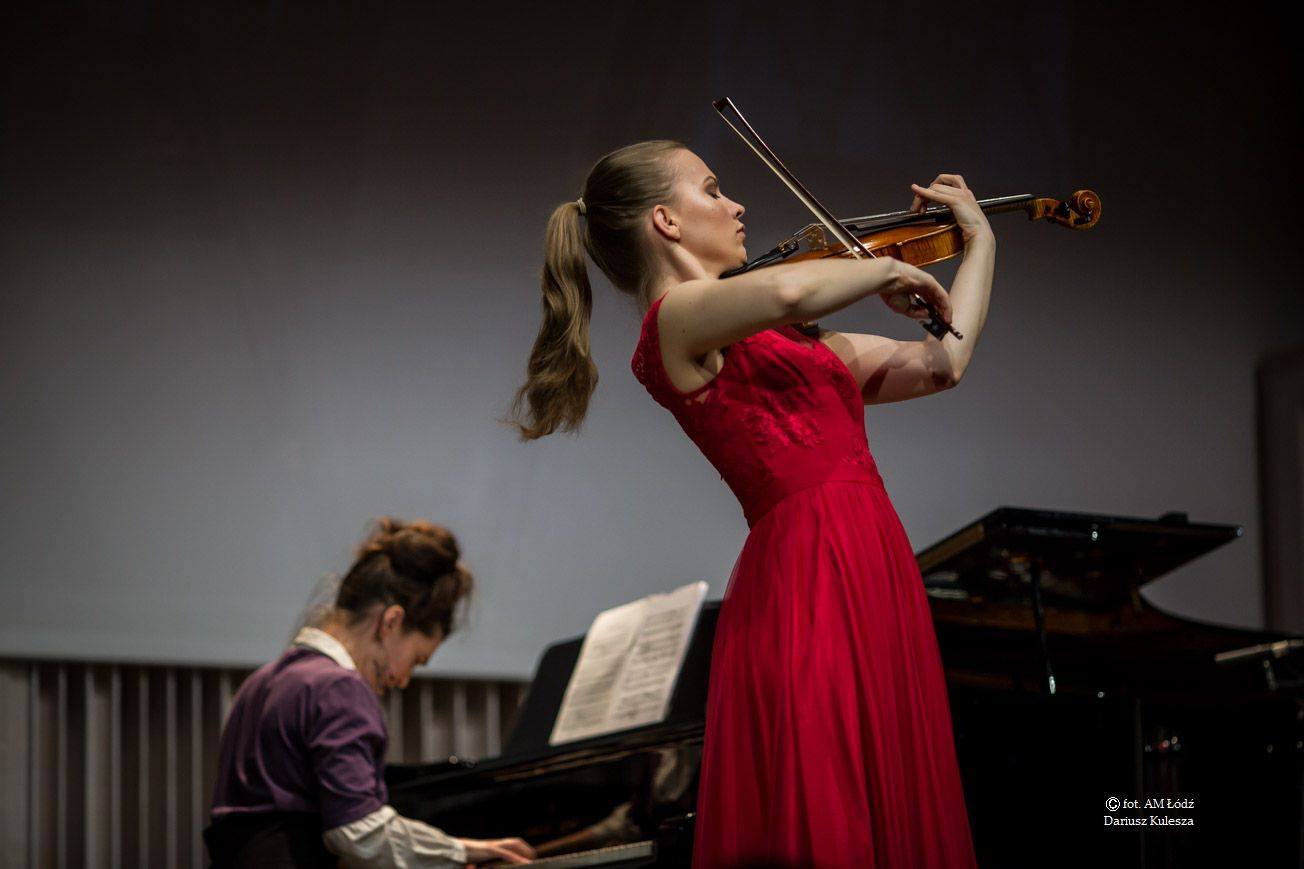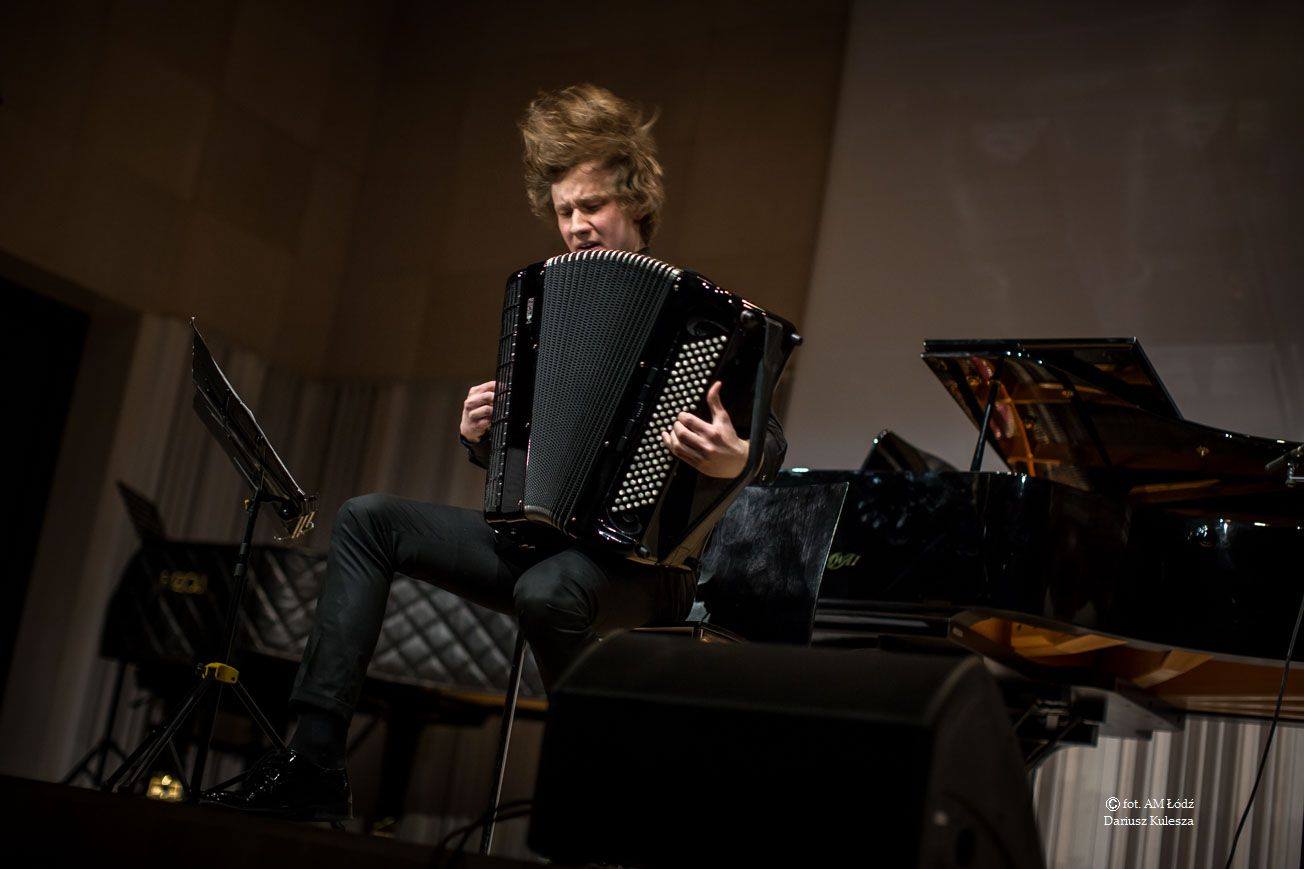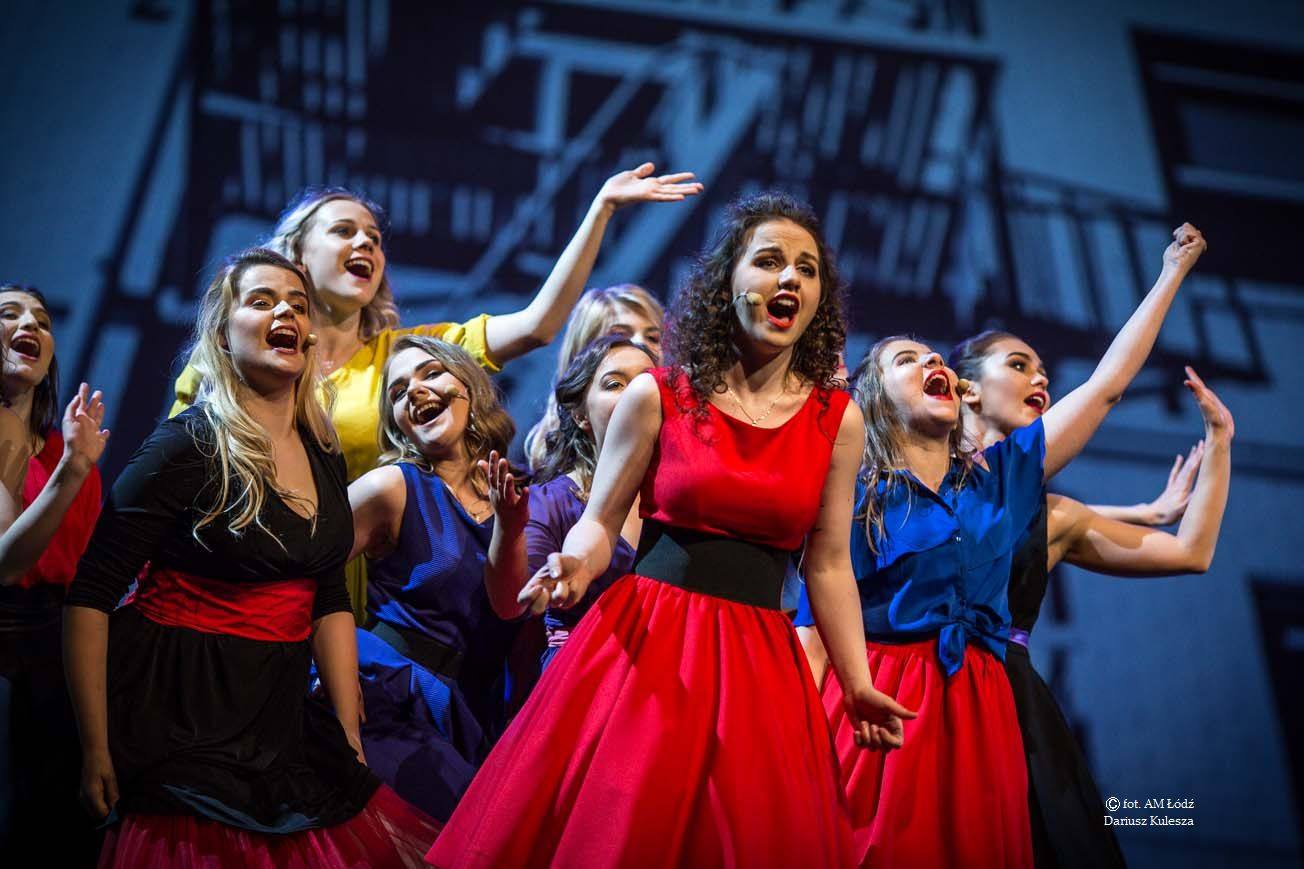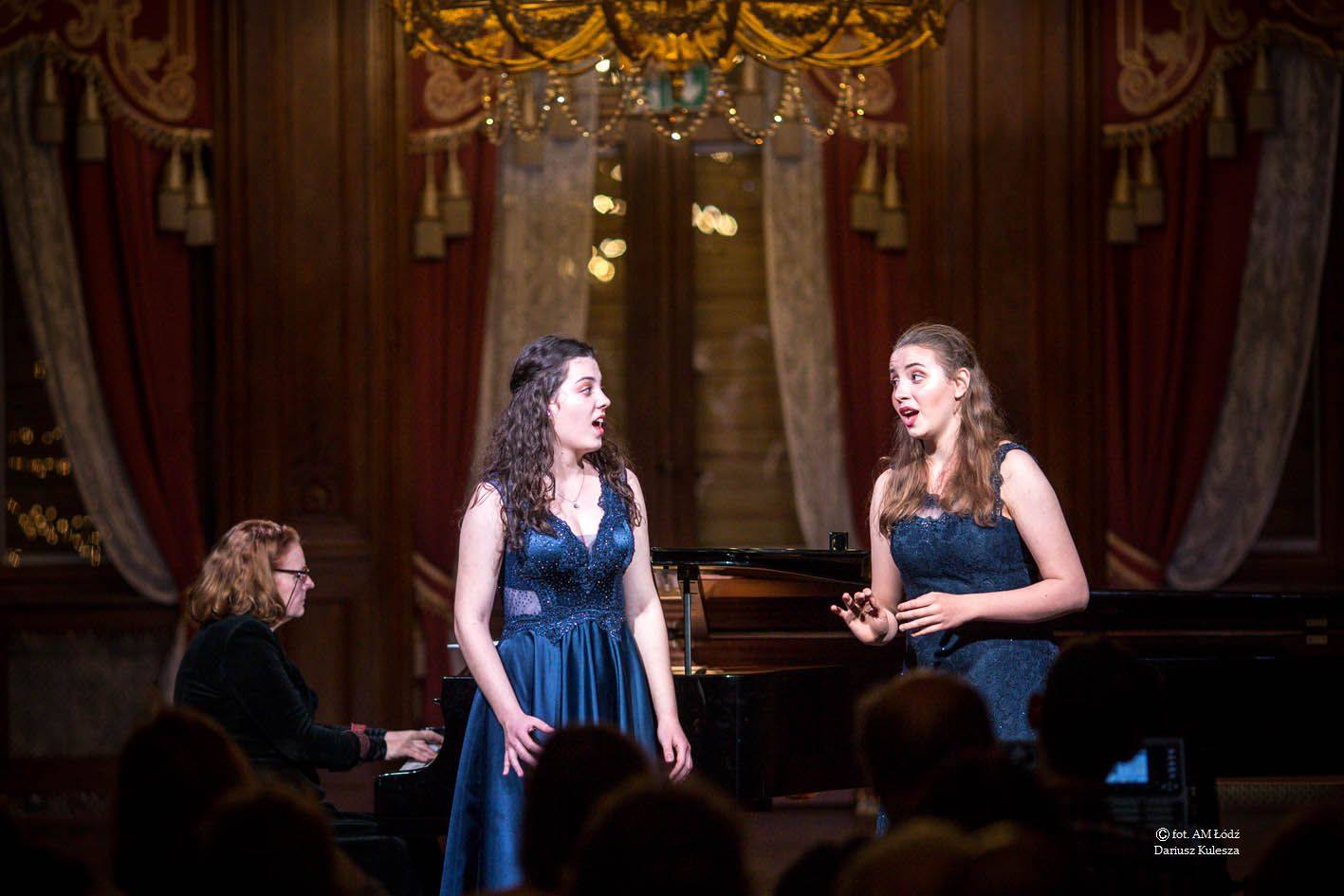conducted in English
Faculty of Instrumental Performance
Field of study: INSTRUMENTAL STUDIES
Full-time 1st cycle studies (3 years)
majors:
piano, harpsichord, organ, violin, viola, cello, double bass, flute, oboe, clarinet, bassoon, saxophone, horn, tuba, trombone, trumpet, percussion
The study program is addressed to musically talented candidates with a certificate of secondary education who want to continue music education and develop their skills in the field of a chosen instrument performance. Candidates must demonstrate both the ability to play the instrument and general music knowledge at the level of a secondary music school.
GRADUATE PROFILE
-
The graduate receives a diploma of the 1st cycle studies in a chosen instrument performance and is entitled to apply for the 2nd cycle studies. The graduate has necessary qualifications to work as a musician – instrumentalist: soloist and chamber musician.
- The graduate of the 1st cycle studies possesses the following competences:
- has knowledge of basic repertoire related to his/her major, as well as performance and artistic skills enabling him/her to convey information and artistic ideas understandable to specialists and those unconnected with music;
- can freely and creatively use the means of artistic expression within his/her major; can apply knowledge of history of music, literature and broadly understood cultural context in order to develop his/her own artistic ideas; with the latest artistic trends in mind, he/she is able to prepare an interpretation of a musical piece and perform it in public; has the ability to develop joint artistic projects in chamber ensembles and various types of orchestra;
- has communication skills and ability to cooperate with other artists in order to develop joint projects.
ENTRANCE EXAMS
- MAJOR EXAM
MAJOR INSTRUMENT
Performance of the program at the level of a secondary music school diploma.
- PIANO
- J. S. Bach – Prelude and fugue (Das wohltemperierte Klavier).
- A whole classical sonata (recommended: a sonata by L. van Beethoven – the examination board may choose different movements).
- An etude by F. Chopin from op. 10 and op. 25 (excluding E major op. 10 no. 3, E flat minor op. 10 no. 6, C sharp minor op. 25 no. 7).
- A piece by F. Chopin. The program must be performed from memory.
- HARPSICHORD
- J. S. Bach – Prelude and fugue, or Fantasia and fugue, or a piece involving a fugue.
- A pre-classical or classical sonata (e.g. by W. F. Bach, C. Ph. E. Bach, J. Haydn, W. A. Mozart or L. van Beethoven).
- A virtuoso piece.
- Any selected piece. The program may be performed on the piano or harpsichord.
- ORGAN
- A piece from the pre-Bach era.
- A piece by Johann Sebastian Bach [prelude (fantasia, toccata) and fugue].
- A piece from the 19th-20th century.
- VIOLIN
- J. S. Bach – two movements of a chosen sonata and a partita for violin solo.
- One caprice.
- A concerto (1st movement, or 2nd and 3rd ones).
- VIOLA
- J. S. Bach – two movements of a chosen cello suite (transcribed for viola solo), or J. S. Bach – two movements of a chosen sonata or partita for violin solo (transcribed for viola solo).
- One caprice.
- A concerto (1st movement, or 2nd and 3rd ones). The program should be performed on viola. The Faculty Recruitment Board may allow to perform the program on the violin upon the request of the candidate who declares to take up studies in the major of viola (and meets all other requirements specified in the recruitment rules and regulations).
- CELLO
- J. S. Bach – one part of a suite for cello solo.
- A caprice – A. Piatti, or a double stops etude.
- Two contrasting movements of a sonata or concerto (1st movement with cadenza, or 2nd and 3rd ones)
- DOUBLE BASS
- Two parallel scales (major-minor), passages.
- A virtuoso piece (etude, caprice, tarantella or variations).
- Two movements of a sonata.
- A concerto (1st and 2nd movements, or 2nd and 3rd ones).
- A cantilena piece.
- WIND INSTRUMENTS
- Major and minor scales in different variants.
- One/two technical piece(s) (etude, caprice).
- A concerto or sonata.
- Any selected work.
(flute, oboe, clarinet, bassoon, saxophone, horn, trumpet, trombone, tuba)- PERCUSSION
- Vibraphone – solo piece or piece with accompaniment using four-mallet technique.
- Marimba or xylophone – solo piece or piece with accompaniment.
- Kettle drums – solo piece or piece with accompaniment.
- Snare drum – two diversified solo pieces:
1. one using rudiments,
2. one using classical technique, including tremolo, acciaccatura, irregular values and dynamic changes. - A multipercussion set – solo piece or piece with accompaniment.
- BASIC EXAMS
-
INDEPENDENT PREPARATION OF A PIECE (assigned time: one hour)
SIGHT-READING - AURAL PREDISPOSITIONS TEST

Faculty of Instrumental Performance
Field of study: INSTRUMENTAL STUDIES
Full-time 2nd cycle studies (2 years)
majors:
piano, harpsichord, organ, violin, viola, cello, double bass, flute, oboe, clarinet, bassoon, saxophone, horn, tuba, trombone, trumpet, percussion
The study program is addressed to the candidates with a diploma of the 1st cycle studies, who are knowledgeable about music and skilled in instrumental performance at the academy of music bachelor’s degree level. Each candidate is able to plan mindfully further music education, development of musical interests as well as future career path by selecting an appropriate module, that is a group of optional specialized courses. During a 2-year program, every student acquires additional skills by attending, along with obligatory courses, one module of specialized courses.
- For the piano major:
- soloist (only for candidates who received a minimum of 23 points in the major instrument entrance exam),
- chamber music. For the harpsichord and organ majors:
- soloist,
- chamber music. For the string instruments, wind instruments and percussion majors:
- virtuoso,
- chamber music,
- orchestral.
GRADUATE PROFILE
-
The graduate receives comprehensive education in art as a musician and instrumentalist with thorough theoretical and practical knowledge, able to pursue an independent stage activity. Based on the experience gained during studies, through a mindful selection of major, they can design their further career path on their own. They are prepared for enrolling in the postgraduate studies.
Pedagogical qualification, compliant with general educational standards for the profession of a teacher, is acquired simultaneously by attending courses within Pedagogical Studies.
- The graduate of the 2nd cycle studies has the following competences:
- based on enhanced theoretical knowledge and technical skills related to the major, the person is prepared for independent creative work in the profession of a musician – instrumentalist; he/she can interpret and perform music pieces autonomously, based on one’s own artistic ambitions and inspirations, at a high professional level and in accordance with stylistic requirements;
- demonstrates the ability to develop and expand a wide repertoire within the major, and potentially to specialize in a chosen area; has the ability to single-handedly initiate and develop artistic projects requiring flexible thinking and creativity as a member of chamber ensembles and various types of orchestra;
- has honed the skill of communication and cooperation when pursuing one’s goals; demonstrates the ability to consolidate knowledge and to accurately interpret complex phenomena and issues; demonstrates the ability to express opinions and to make judgments as well as correlate these opinions with reflections upon artistic or social and ethical responsibilities; after completing the Pedagogical Studies, he is qualified to teach in music schools of all degrees.
ENTRANCE EXAMS
- MAJOR EXAM
MAJOR INSTRUMENT
- PIANO
- A classical sonata (whole).
- A virtuoso piece (recommended: an etude).
- Any selected Romantic piece. The program must be performed from memory.
- ORGAN
- J. S. Bach – a large form.
- Any selected large piece from 19th to 21st century.
- HARPSICHORD
- J. S. Bach – a large form.
- A piece from the French Baroque period.
- Any selected piece.
- VIOLIN, VIOLA*, CELLO
- A caprice or etude solo played from memory.
- Two movements of a cyclical piece for a solo instrument (sonata, partita or suite) played from memory.
- First movement of a concerto (or second and third movements) with piano accompaniment, played from memory; or the first movement of a sonata with piano (from Classicism to contemporary times) – it is permitted to play it from the score.
Selected works must represent three different musical styles.
* The program must be performed on viola. The Faculty Recruitment Board may give their consent to perform it on the violin, pursuant to the request submitted by the candidate applying to major in viola performance (on the condition that the candidate meets all other requirements specified in the recruitment regulations).
- DOUBLE BASS
- A concerto with piano accompaniment (whole).
- Any selected piece with piano accompaniment. The program must be performed from memory.
- WIND INSTRUMENTS
- Three pieces in different styles and forms, one of which has to be played from memory.
(flute, oboe, bassoon, clarinet, saxophone, trombone, trumpet, French horn, tuba)- PERCUSSION
- A stylistically diversified solo or accompanied recital (30-40 minutes) including a minimum:
- One piece for marimba or vibraphone,
- One piece for timpani,
- One piece on snare drum,
- One piece on multipercussion or instrumental theater.
- INTERVIEW covering:
- the candidate’s motivation to continue studies;
- focus of the candidate’s major-related interests;
- expectations regarding chosen major;
- plans concerning the candidate’s professional career.

Faculty of Performing Arts
Field of study: VOCAL STUDIES
Full-time 1st cycle studies (4 years)
majors:
vocal and acting performance
The study program is addressed to secondary school graduates (of high schools, technical schools, music schools) who successfully passed secondary school-leaving exams, have vocal and acting predispositions and are interested in developing their skills.
GRADUATE PROFILE
-
The offer of the 1st cycle studies is addressed to talented graduates of secondary comprehensive and music schools, with musical talent and intellectual potential. The aim of the 1st cycle studies is to prepare students for work in the professions directly connected with singing in musical theatres. Completion of the studies enables the graduate to undertake a job in cultural institutions, to organize events and to host concerts.
-
The graduate of the 1st cycle studies possesses the following competences:
- has theoretical knowledge and skills allowing him/her to design and develop his/her own artistic ideas; has theoretical knowledge of history of music; is familiar with musical styles and related performance traditions; is familiar with elementary vocal repertoire;
- has the ability to effectively practice his/her vocal technique and hence the potential of artistic development through his/her own independent work; demonstrates the ability to work in a group and develop joint artistic projects; has basic theoretical knowledge of physiology, anatomy and hygiene of the voice apparatus; has the skill of aural recognition of a musical material, is able to memorize it and make free use of it; has basic theoretical knowledge and practical skills of acting, stage diction and stage movement, which enables him/her to perform artistic tasks on stage; has the ability to create a stage image relevant to a given artistic undertaking; has basic knowledge of the Italian language and other foreign languages, which enables him/her to memorize and properly interpret works from the world vocal literature;
- shows creativity, ability to plan and effectively communicate with others; is able to think flexibly and to formulate his/her own ideas.
ENTRANCE EXAMS
- MAJOR EXAM
- Candidates have to prepare at least three vocal pieces with accompaniment (preferably two arias and one song, or one aria and two songs). The exam is held in two stages: 1st stage – candidates perform two works, 2nd stage – also two works (one of which may be the same as in 1st stage). Piano scores of performed works should be submitted before the exam.
- BASIC EXAMS
- ACTING AND MOVEMENT PREDISPOSITIONS TEST
Candidates should prepare one short poem and short prose (3 minutes – 1 page). For the dance and movement test, candidates should bring a gym outfit and proper shoes. - AURAL PREDISPOSITIONS TEST
Candidates who completed either primary or secondary music schools will be tested accordingly to their prior education. - WRITTEN WORK
on a topic selected from the three available
- ACTING AND MOVEMENT PREDISPOSITIONS TEST

Faculty of Performing Arts
Field of study: VOCAL STUDIES
Full-time 2nd cycle studies (2 years)
majors:
vocal and acting performance
The offer of 2nd cycle studies is addressed to gifted graduates of the 1st cycle studies, with a particular vocal talent, substantial knowledge of music, as well as high artistic and intellectual potential, ensuring best results in the course of theoretical and practical training. The objective of the 2nd cycle studies is to prepare students for autonomous artistic activity. The graduate is ready to pursue stage and concert activity as a solo singer and to collaborate within vocal, operatic, operetta or oratorio ensembles.
GRADUATE PROFILE
-
The graduate receives a diploma of the 2nd cycle studies in vocal performance and can master one’s skills during postgraduate studies. One has practical skills necessary to pursue an independent artistic activity. The graduate is prepared – as a soloist – to pursue stage and concert activity in collaboration with vocal, operatic and oratorio ensembles. He/she is also qualified to teach in music schools of all degrees. The graduate is able to design and develop their own artistic concepts. Based on the experience gained during studies and through a mindful selection of the major, they can plan their further professional career.
-
Pedagogical qualification, compliant with general educational standards for the profession of a teacher, is acquired simultaneously by attending courses within Pedagogical Studies.
-
The graduate of the 2nd cycle studies possesses the following competences:
- has a highly-developed artistic personality, which – thanks to extensive theoretical knowledge and practical skills – enables them to create and develop their own artistic concepts; possesses a deepened theoretical knowledge of broadly understood vocal literature and of its relations with other disciplines;
- has the ability to perform a wide vocal repertoire; demonstrates ease of interpretation, supported by knowledge of musical styles and performance traditions; has the ability to work in a team and to cooperate with others within joint artistic projects; has the ability to present their artistic concepts and programs in public, to establish contact with the audience through evocative and compelling conveyance of ideas behind musical works; has the ability to memorize and publicly present a vocal part in a theatrical work (opera, operetta) or stage work (cantata, oratorio, song cycle);
- exhibits creativity and independence in formulating thoughts and beliefs, and the skill of criticism and self-assessment; demonstrates the ability to develop elaborate presentations in writing and speech on the topics related to the major.
ENTRANCE EXAMS
- SOLO SINGING
The candidate performs four selected pieces.
- INTERVIEW covering:
- the candidate’s motivation to continue studies;
- focus of the candidate’s major-related interests;
- expectations regarding chosen major;
- plans concerning the candidate’s professional career.

Faculty of Performing Arts
Field of study: VOCAL STUDIES
Part-time studies (3 months)
STUDIES WITHIN THE EUROPEAN OPERA ACADEMY
The study program is conducted within the European Opera Academy modules, also available as part of the Erasmus+ exchange program.
In September 2016, the international opera project named “European Opera Academy” was launched. It was initiated by the Conservatory of Maastricht. This educational platform combines an exchange of experiences in the field of opera and contemporary theatre with the development of individual needs and talents of participating students. It offers exceptional training opportunities through varied teaching modules in selected higher music education institutions all over Europe.
The study program is addressed to students and graduates of higher music education schools with a diploma of the 1st cycle or 2nd cycle studies, who aim to develop their practical knowledge and skills in terms of stage arrangement of an operatic part.
The program of the European Opera Academy gives students an opportunity to gain experience with a professional preparation of a selected role from opera under supervision of renowned specialists, and next to perform it on stage during the show.
ENTRANCE EXAM
Candidates are qualified for studies by a group of pedagogues on the grounds of submitted video materials. Detailed information on the requirements regarding video materials is given on the www.europeanopera.academy website. Recruitment process for all available modules of the European Opera Academy is conducted via an application form posted on the www.europeanopera.academy website, in accordance with the rules and regulations given therein.



